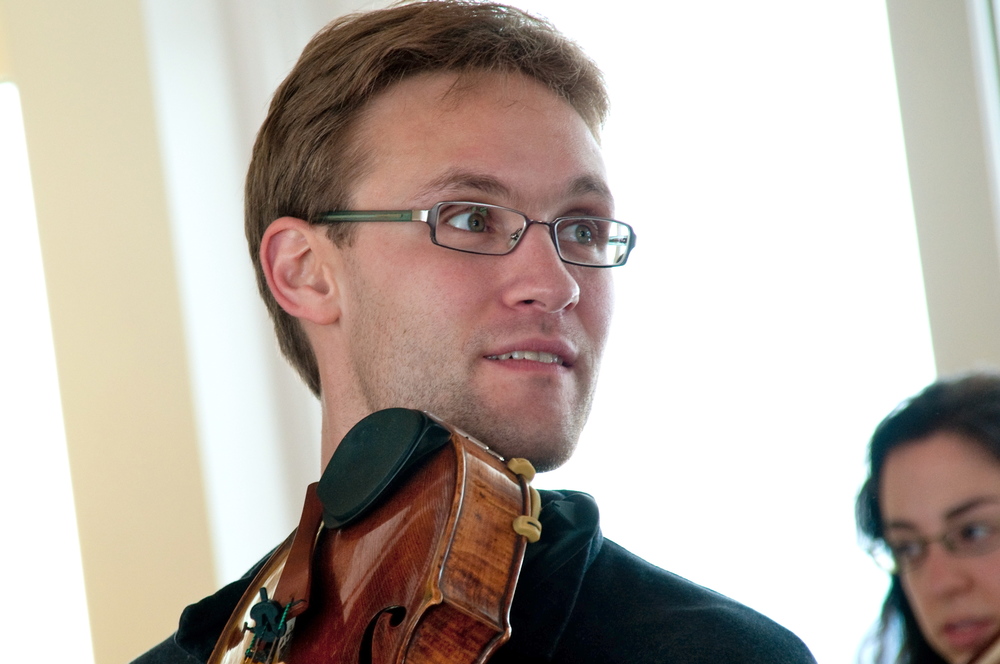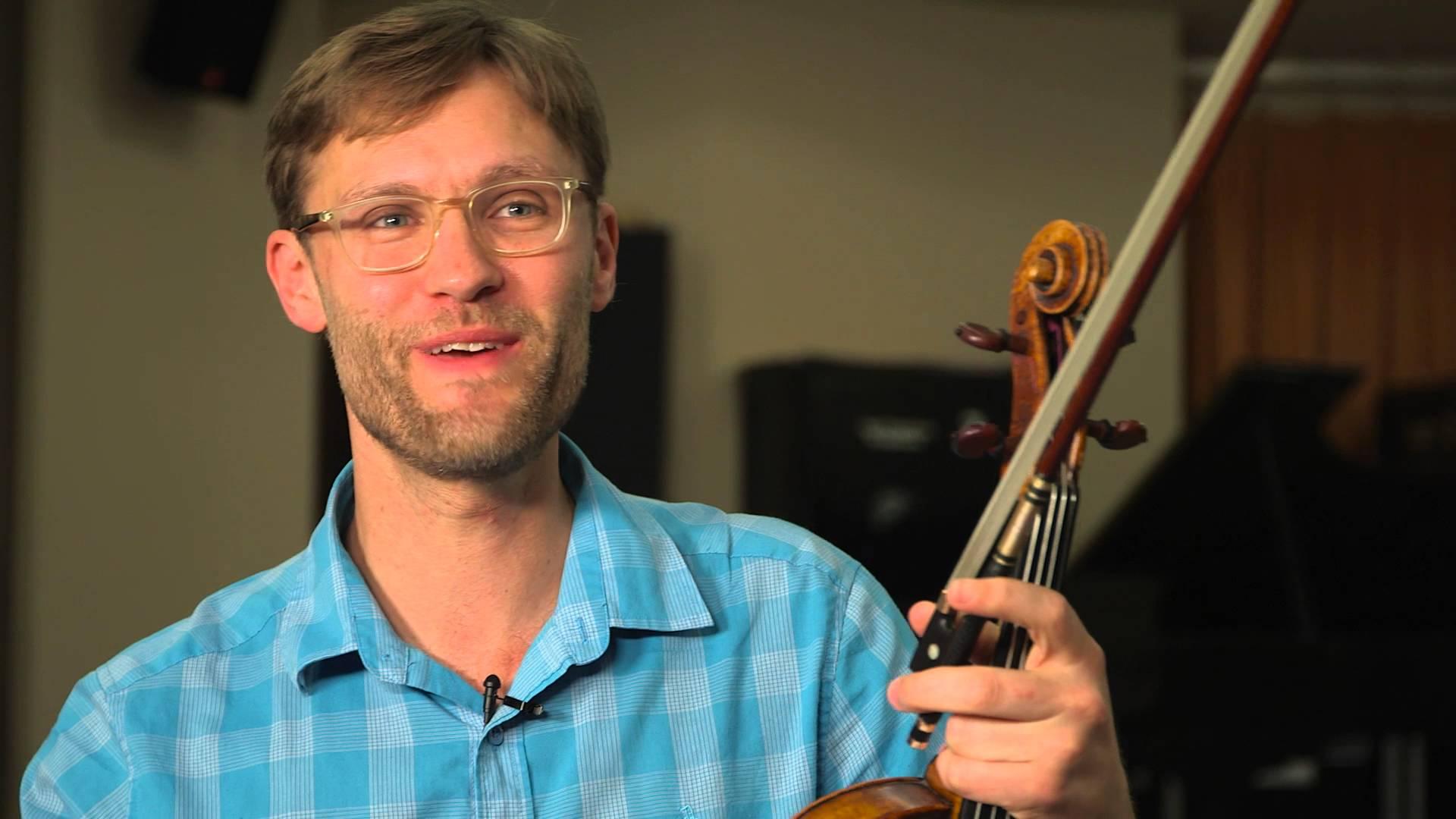
Jonathan Vinocour ’03 M.M., ’04 G.D. joined the San Francisco Symphony as Principal Violist in 2009, having previously served as principal violist of the Saint Louis Symphony and guest principal of the Gewandhaus Orchestra of Leipzig.
A native of Rochester, New York, Mr. Vinocour graduated from Princeton University in 2001 with a degree in chemistry and was awarded the university’s Sudler Prize in the Arts. He completed his master’s degree in 2003 at New England Conservatory, where he studied with Kim Kashkashian. Mr. Vinocour received First Prize in the Holland America Music Society Competition, and his first solo album, featuring works of Britten and Shostakovich, was recorded with the support of the Holland America Music Society. He has appeared as soloist with the Saint Louis Symphony Orchestra under maestros Hans Graf and Nicholas McGegan. He made his solo debut with the San Francisco Symphony under Michael Tilson Thomas in Berlioz’s Harold in Italy and also performed Morton Feldman’s Rothko Chapel with the orchestra to critical acclaim.
Mr. Vinocour has been a regular participant at the Marlboro Music Festival and has toured extensively with Musicians from Marlboro in past seasons; he has also participated in numerous other festivals, including the Steans Institute at the Ravinia Festival, Open Chamber Music at Prussia Cove, the Aspen Music Festival, and the Tanglewood Music Center. Mr. Vinocour has been a guest of the Boston Chamber Music Society and International Sejong Soloists and collaborated with artists such as Paula Robison, Gilbert Kalish, Miriam Fried, Yo Yo Ma, Jaime Laredo, and members of the Amadeus, Arditti, Cleveland, Guarneri, Juilliard, Jupiter, Mendelssohn, and Orion string quartets. He is a founding member and regular performer with ECCO (East Coast Chamber Orchestra), a conductor-less chamber ensemble based in New York. Mr. Vinocour plays on a viola made by Lorenzo Storioni in 1784 on kind loan from the San Francisco Symphony.
You’ve performed as principal violist in the U.S. and as a guest with the Gewandhaus Orchestra in Leipzig. Could you tell us a little about some of the cultural differences you observed between orchestras in Europe and the U.S.? The Gewandhaus definitely felt more genteel, more “old world” – I remember us all shaking hands with our colleagues to start each rehearsal, just to give an example. Even as a world-class orchestra with an international reputation, it felt like an intimate regional orchestra. It is an institution that is part of the city’s cultural fabric, and it draws a lot of age diversity in its audiences.
There is obviously a lot of discussion about audience development among American symphony orchestras, and about how to stay relevant into the future. What’s your take on finding that elusive balance between tradition and innovation? In San Francisco we don’t struggle with losing our audience in the same way that many other orchestras do. That said, I do think that all orchestras need to be creative in offering different options for the concert experience. In our culture people are used to being stimulated in more ways than just aurally, so multimedia is key. The San Francisco Symphony has experimented a lot in this arena – one example was last season’s SoundBox series. It took place in a rehearsal space set up with open lounge seating and a “club” atmosphere, and it covered a lot of experimental ground with commissions, multimedia experiences, and more.
Obviously you are in a career that demands 100% all of the time – how do you recharge in your free time? For me, it’s important to stay active – sports, exercise – and to spend time away from music, sometimes not even hearing it.
How do you keep an orchestral work fresh when you’re approaching it for the 50th (or more) time? It’s never always the same! The orchestra, the conductor, the venue, the performance…they all have an impact on the experience.
What’s the most important thing for young musicians entering your field to know? What do you wish you would have known? That it’s okay not to know what you want to do right away. I see a lot of undergraduates already focused on orchestral auditions – and there are certain schools that take this approach and are very successful in preparing their students. But I encourage young musicians to explore. I didn’t know what I wanted to do until a while after graduate school. For those who do eventually decide on a career in orchestral music, I think it’s important to learn a lot more than just the excerpts – learn the piece, the context, what underlying harmonies are going on. I do a lot of teaching and that level of awareness can be really noticeable when I’m listening to someone.

